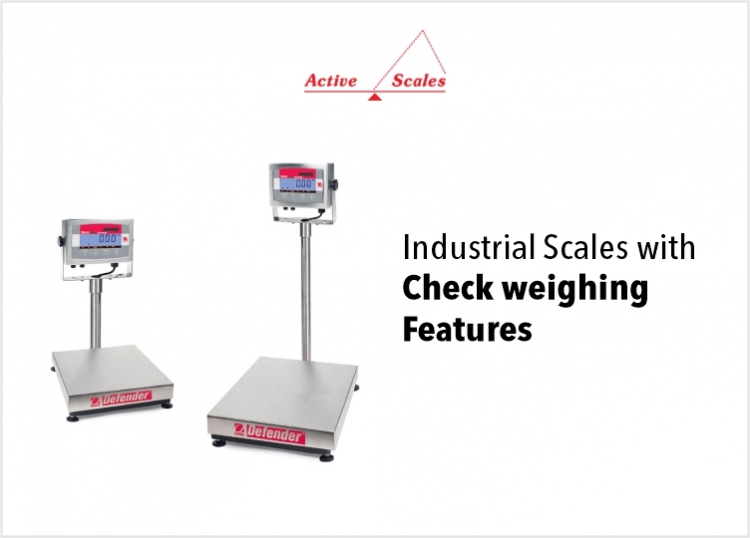 Image Designed by Freepik
Image Designed by Freepik
In today's fast-paced industrial landscape, precise and efficient weighing processes play a pivotal role in ensuring the quality of goods and maximizing productivity. Industrial weighing scales have become indispensable tools for a diverse range of industries, letting them to monitor, manage, and control the weight of materials and products accurately. Among the various types of industrial scales available, those equipped with checkweighing features stand out as a key solution for businesses seeking heightened accuracy and streamlined operations.
1. Precision and Accuracy: The foremost advantage of checkweighing industrial scales is their exceptional precision and accuracy. With the ability to measure weight down to the smallest increments, these scales can ensure that products are consistently manufactured to meet strict quality standards.
2. Checkweighing Functionality: The checkweighing feature allows operators to set target weight limits for products. During the weighing process, the scale compares the measured weight to the predefined limits and quickly indicates if the product falls within the acceptable range. This helps in identifying underweight or overweight items, preventing costly errors and potential safety hazards.
3. Increased Efficiency: By automating the checkweighing process, industrial scales save time and effort for businesses. This translates into faster production cycles, reduced labor costs, and enhanced overall efficiency.
4. Quality Control: For industries dealing with batch production or packaging, checkweighing scales become an indispensable tool for quality control. They enable businesses to uphold product consistency and compliance with regulations, ensuring customer satisfaction and brand reputation.
5. Data Management and Connectivity: Many modern industrial bench scales come equipped with advanced data management capabilities. They can store weighing data, connect to central systems, and integrate with other industrial equipment, allowing seamless data transfer and analysis.
6. Multi-Unit Conversion: Industrial bench scales with checkweighing features often support multiple units of measurement, allowing users to switch between various measurement units, such as kilograms, pounds, grams, ounces, and more, to cater to different application needs.
7. Over/Under Indicators: Checkweighing scales typically come with bright and clear LED indicators, making it easy for operators to identify whether the measured weight is above, below, or within the target range. This visual cue ensures swift decision-making during production processes.
8. Tare Function: The tare function enables the scale to automatically deduct the weight of containers or packaging materials, providing a net weight measurement of the actual product being weighed.
9. High Weight Capacity: Industrial bench scales are engineered to handle substantial weight capacities, making them suitable for weighing large items or bulk materials commonly found in industries like manufacturing, logistics, and agriculture.
10. Built-in Alarms: To ensure prompt attention to weight deviations, checkweighing scales often feature built-in audible and visual alarms that activate when products fall outside the predefined weight range. This helps prevent errors and facilitates immediate corrective action.
11. Rugged Construction: Industrial bench scales are constructed with robust materials such as stainless steel, aluminium, or heavy-duty plastics, making them durable and resistant to wear, tear, and corrosion in harsh industrial environments.
12. Waterproof and Dustproof: Many checkweighing scales boast IP-rated protection, making them waterproof and dustproof. This feature is particularly beneficial for industries with rigorous cleaning protocols or those exposed to moisture or dusty conditions.
13. Battery Operation: Some industrial bench scales come with battery-operated options, offering portability and flexibility to weigh items at various locations without requiring a direct power source.